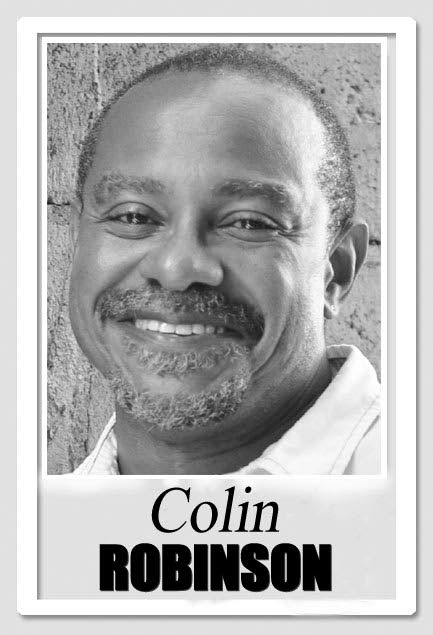Portraits of the nation

Thanks to those of you who responded to last week’s column. Yes, on Republic Day I did also listen to Black Stalin’s New Portrait of Trinidad. Thumbing through and debunking the boasts in Sniper’s 1965 calypso monarch tune seven years later, Calliste laments how “we are no more great…Our country has vastly deteriorate” – “I painting over the portrait of Trinidad.”
Revolution, race talk and the Sedition Act preoccupied Stalin four years before republicanhood.
I spent this past week continuing to listen to more classic portraits of the nation, many from the republican era, including depictions like David Rudder’s Another Day in Paradise and Christophe Grant’s Voices from the Ghetto (given voice by Singing Sandra), post-1990 anthems preoccupied with poverty and violence.
Rudder’s deeply cynical portrait of “the land of the mimic men” hinges on mocking cherished symbols of nationhood, singing, “Forged is the first word of the anthem,” parodying Eric Williams’s Independence invocation to children that the future lies in their schoolbags with: “Look in they schoolbag: future gun, future knife, future jailyard, future pain for you, your wife or your mama.” And imagining of the doctors and lawyers who “long ago every mother and father” imagined their children to become: “As a gorgon shoot another gorgon, the doctor job is to stitch up the organ, the lawyer job is to keep him out of jail. He back on the street, terror in your tail.”
Voices from the Ghetto opens with the image of a golden sun rising “slowly over the Hill.” In contrast, bellowing in Sandra’s voice, Grant paints an equally bleak but sharply different portrait of Rudder’s gorgons, as “social victims of unjust laws”: “revolutions’ base, politicians’ pawn, and often their tragic story brings a journalist glory. No wonder they view the world with scorn from since the day they born. Some call them rebels without a cause…” While its rhyming images of poverty sometimes fall into the maudlin, the song uncompromisingly names racial bias in the criminal justice system.
Not all recent national portraits are so troubled. In the last decade, Benjai has given us the gloriously and repetitively celebratory Trini, about how “We does sell out all the strong liquor.”
“’Cause they know ’bout Trini does look, look, look, look, look. And they like how Trini does cook, cook, cook, cook, cook…And they like Trini woman wok wok wok wok wok wok wok wok wok wok wok. And we make good company. And we make good company. And we make good company.”
Perhaps the modern portrait that has resonated most powerfully across all generations is Ultimate Rejects’ Full Extreme, a remarkable blend of the ready mindlessness of Benjai and the incisive political critique of Grant and Rudder: “Recession don’t bother we. Promote a fete, and you go see. We go party to the full extreme, and light it up with kerosene. The treasury could burn down: we jamming still, we jamming still. Economy could fall down: we jamming still, we jamming…No we don’t business.”
Much has been written about how this unexpected road march put its finger squarely on the national pulse.
I went through several of what I believe are must-listen portraits, most of them deep with nostalgia, several of them big-yard tunes: Denyse Plummer’s 2001 Nah Leaving, Brother Marvin’s 1996 vision of racial harmony, Jahaji Bhai, the original of Gypsy’s Sinking Ship, as well as its new Trumpian remake.
Many of the portraits use “Trinidad” as a shorthand. So I made sure to listen to tunes I know specific to Tobago, even though they aren’t really portraits. Sam’s tribute to Tobagonian expatriates in New York I used to listen to on repeat when I first heard it. Then there’s Steve Sealy’s playful and catchy pan tune. He becomes haunted by the flagless band he encounters on the Savannah drag people said was from “Somewhere in Tobago,” and is tortured when he finally hears them playing on the radio “but as soon as they done, the announcer come on. Then as he say, ‘That’s our band from,’ the current gone (crickets).”
I’m hoping to hear from readers again this week – caisott2@gmail.com – about the most critical portraits for you, several of which I’m sure I may have overlooked. And about Tobago tunes.


Comments
"Portraits of the nation"